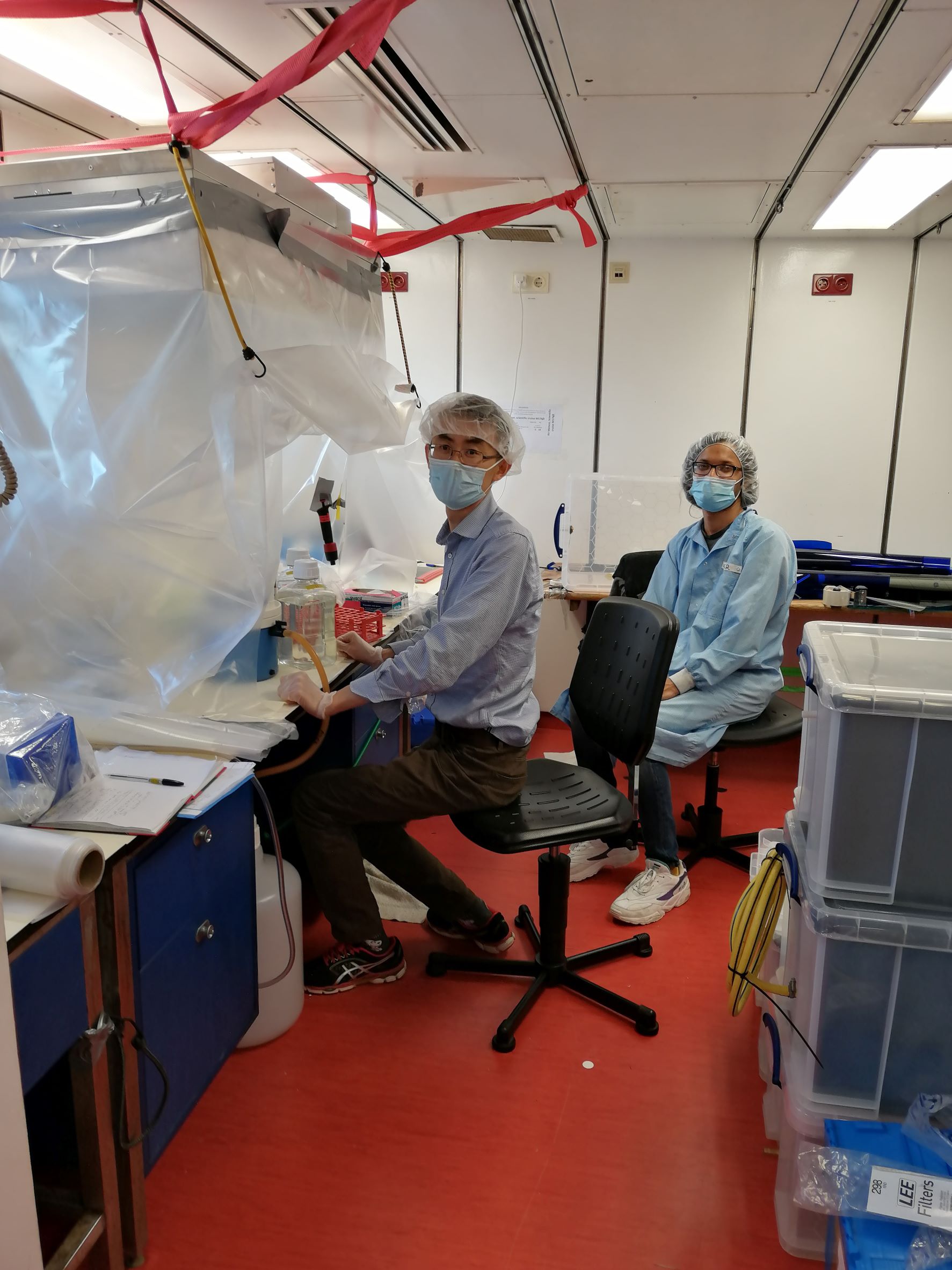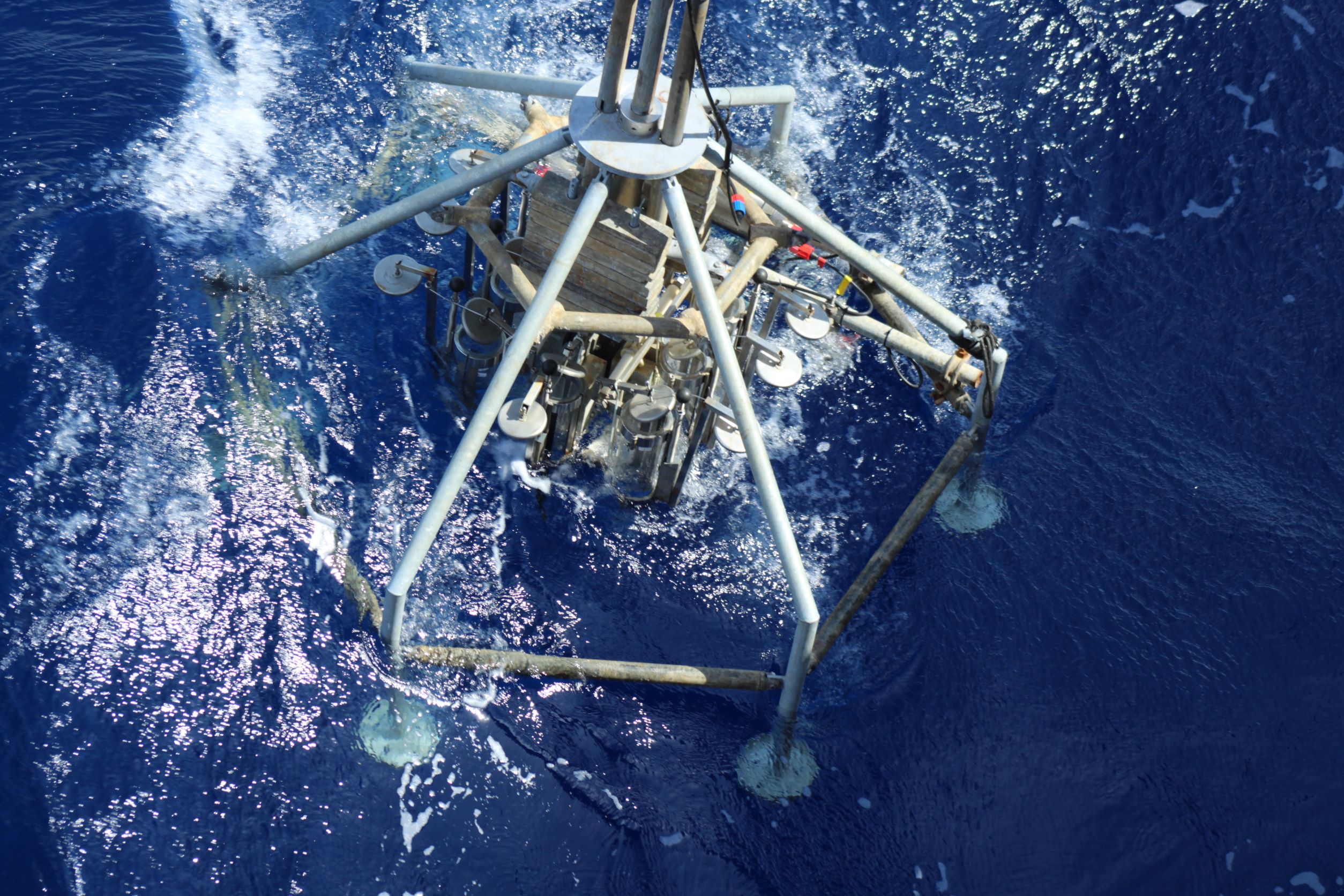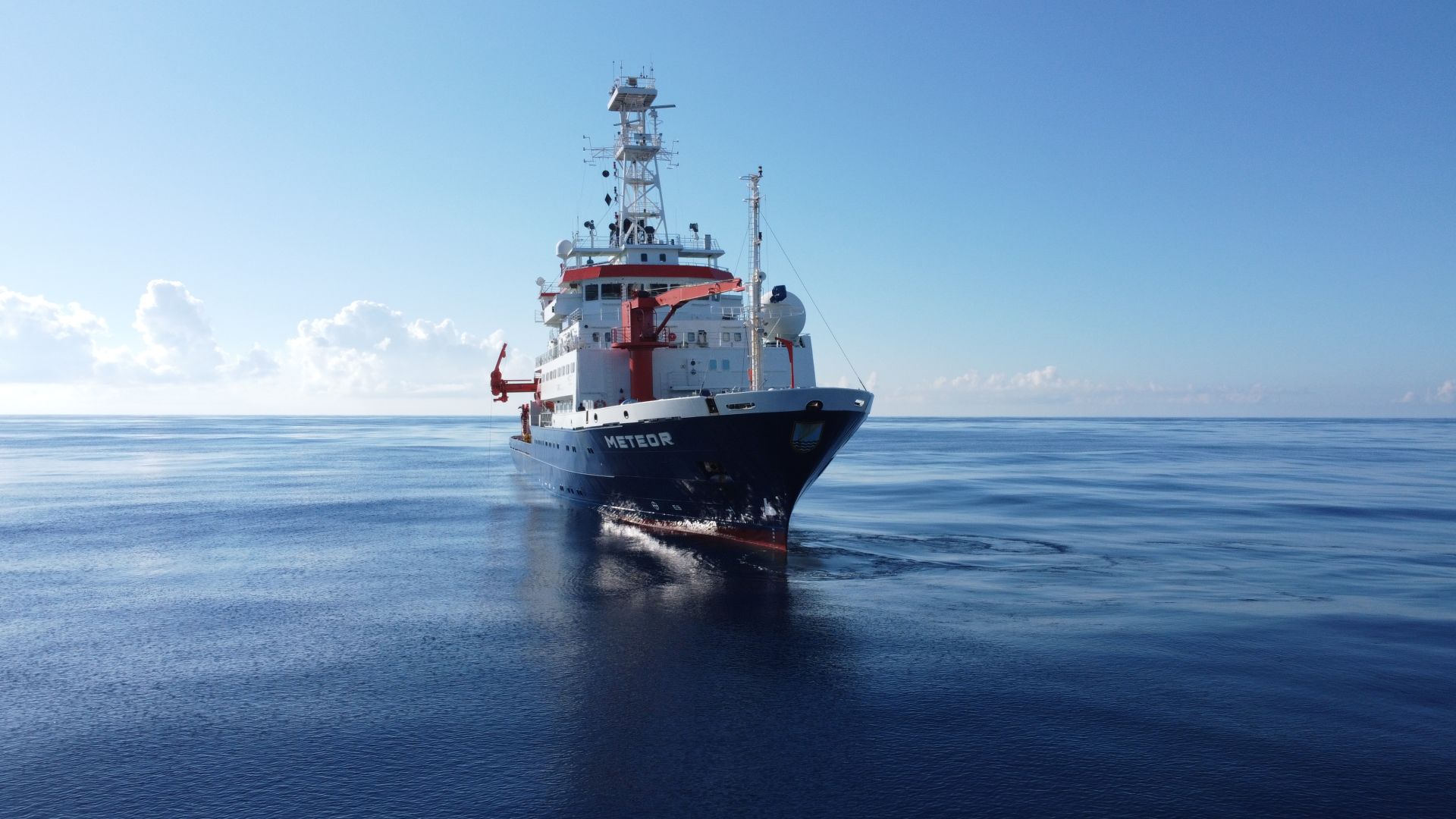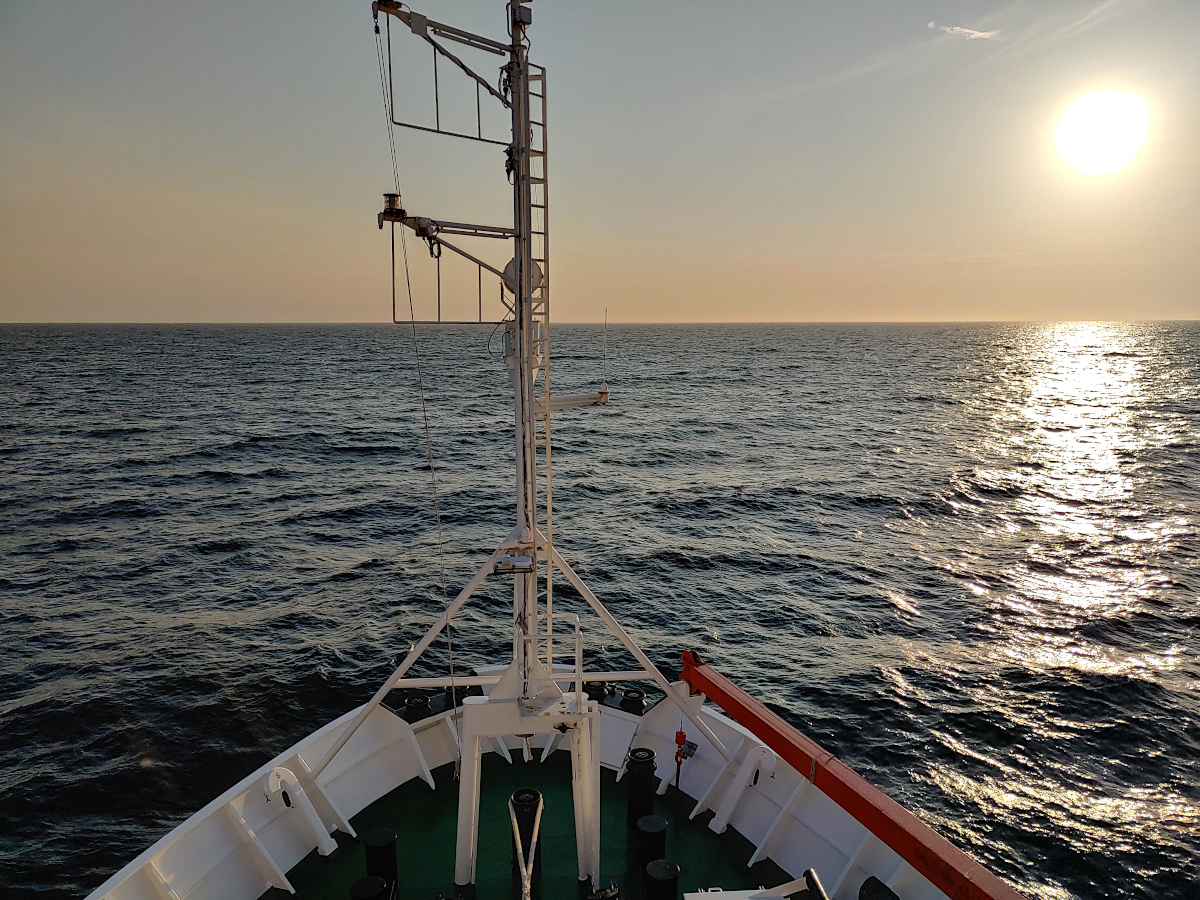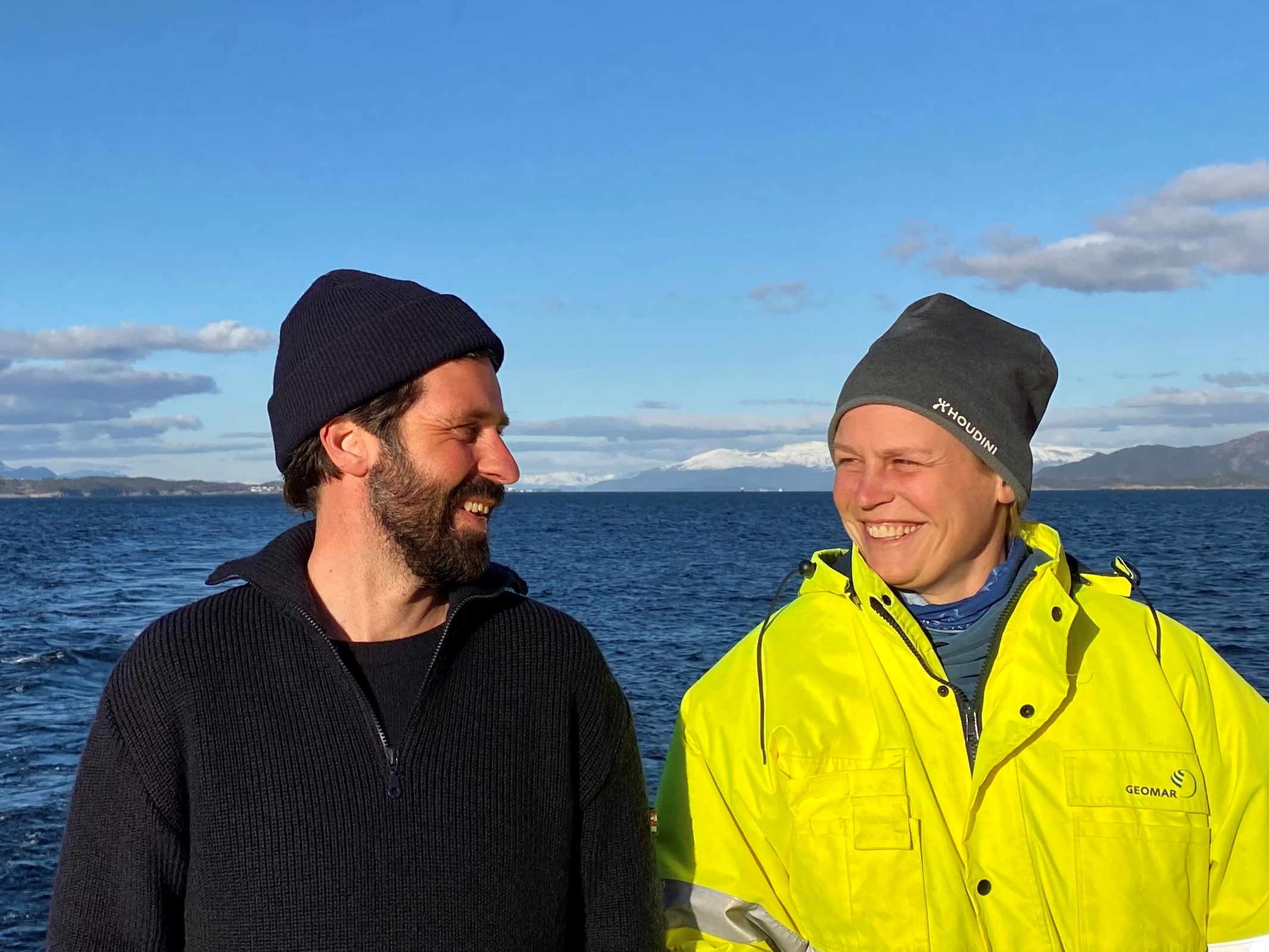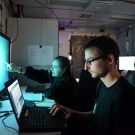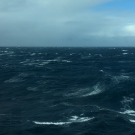Anthropogenic greenhouse gas emissions such as carbon dioxide (CO2) are causing climate change, global warming, and ocean acidification. Microscopic plants called phytoplankton, living in the surface oceans, sequester 50% of global CO2 and supply >50% of new nitrogen used for primary production. Other than light and major nutrients, phytoplankton growth is strongly influenced by availability […]
M176/2 Tiny seafloor inhabitants close to the rainbow vent
It is the fourth day since we arrived at our research location in the middle of the Atlantic: The Rainbow Plume. The Multicorer, or short “MUC” just arrived its final destination at 2300m water depth. Now the wire that holds the MUC tightens again and the winch slowly starts pulling the device back on board. […]
M176/2 Hydrothermal Plume Geochemical study: RainbowPlume
The cruise M176/2 is part of the International GEOTRACES Programme as a process study. The overall aim of cruise M176/2 is to conduct a detailed geochemical sampling of the hydrothermal plume at the Rainbow vent field located at 36°13.80 N, 33°54.14 W on the Mid-Atlantic Ridge (MAR). The deep ocean work will be complimented by […]
Im Arbeitsgebiet vor Nova Scotia
english version below Seit sechs Tagen sind wir nun in unserem Arbeitsgebiet vor Nova Scotia. Daher arbeiten die Teams der Geologie und Ozeanographie nun täglich an Deck. Über Nacht fahren die Hydroakustiker Profile ab, worauf am Morgen danach die Parasound-Daten gesichtet werden. Anhand der Sedimentecholotprofile entscheidet dann Fahrtleiter Ralph in Absprache mit unseren Teamleiter:innen Felix […]
Quer über den Atlantik mit der Maria S. Merian
(english version below) Am 12. Juni, nach 10 Tagen Hotelquarantäne und zwei negativen PCR-Tests, hieß es für uns: „Leinen los“! Mit dem Forschungsschiff Maria S. Merian starteten wir unsere Reise in Emden, Richtung Nova Scotia. Unsere Forschungsexpedition Novamar MSM101 steht unter der wissenschaftlichen Leitung von Prof. Dr. Ralph Schneider. An Bord leitet er das Team […]
AL553 and AL556 – the Baltic integrative time series continues after a one-year Corona gap!
After a one year, Corona-induced break, our integrative time series to assess long-term changes in Baltic Sea pelagic ecosystems finally continues, now running in its 35th year. It feels great to be back at sea after a two-year break and long preparations, overshadowed by the question whether we could really embark this time. In March […]
#FjordExport – Eine Forschungsexpedition trotz(t) Corona
“Nicht nur der wissenschaftliche Erfolg dieser Reise rechtfertigt den Aufwand, auch die ansteckende Begeisterung und die Kooperation sind nach vielen doch recht einsamen Monaten im Home Office eine große Motivation.” Am 2. März 2021 verließ das Forschungsschiff Heincke Bremerhaven mit Ziel Norwegen. Vor dem Start einer Expedition liegen viele Monate Arbeit und Vorbereitung, damit alle […]
Stalk, stalk, stalk.
— Deutscher Text folgt unten — “It’s a metal cage with a couple of cameras being dragged behind the ship, it’s pretty simple” our research group leader said, describing the OFOS (Ocean Floor Observation System), with a smirk on his face, well knowing that bringing such equipment down to the seafloor makes things get difficult […]
From Data to Image
Für eine deutsche Übersetzung scrolle man fleißig Due to technical issues we were not able to upload this blog entry until just now. Nontheless, we want to post the last two interviews looking at the electro megnetic measurement as well and they will follow within the next few days. For the last step in our […]
Alter course
— Deutscher Text im Anschluss — The North Atlantic has shown us its power and beauty this week. It reminded us, that we have to follow his rules and can be grateful for the opportunities to study whenever the wind and waves allow us to do so. This week, we experienced why few research cruises […]
